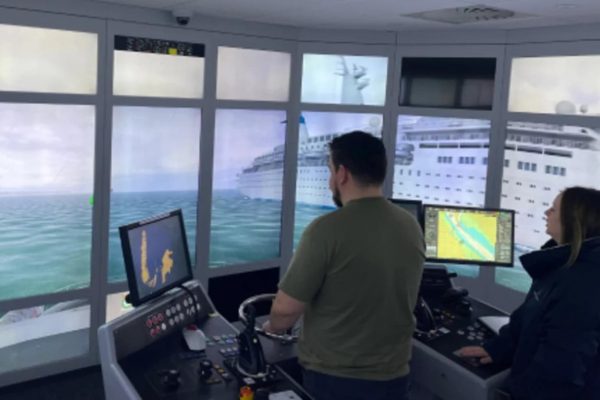Joining the Merchant Navy offers an unparalleled opportunity for those drawn to the open sea, combining adventure, career growth, and the chance to be part of a vital global industry. Whether it’s navigating colossal vessels or maintaining complex machinery, the Merchant Navy presents an exciting and challenging path.
However, aspiring seafarers must understand this profession’s unique requirements and commitments to join the Merchant Navy. This article will delve into the critical aspects one should know before embarking on this journey, providing a comprehensive guide to the roles, training, lifestyle, and more. If you’ve ever considered the call of the sea and are looking to join the Merchant Navy, this information will be essential to your decision-making process.
1. Understanding the Different Roles
The Merchant Navy offers various positions such as Deck Officers, Marine Engineers, Catering Staff, and more. Identifying your skills, qualifications, and interests is essential to find the right role.
Deck Officers are responsible for navigation, safety, and cargo handling, whereas Marine Engineers focus on machinery and propulsion systems. Catering Staff, on the other hand, manage food preparation and services on board. Researching each role thoroughly will help you make an informed decision.
Find out more about the different roles in the merchant navy.
2. Rigorous Training and Qualifications
Training and certifications are vital in the Merchant Navy. In the UK, the STCW Convention mandates minimum training standards. Specific maritime degrees or diplomas from recognised institutions are often prerequisites for officer roles.
Training includes both theoretical knowledge and practical skills such as firefighting, first aid, personal survival, and social responsibilities. Regular refresher courses are also essential to stay updated with the latest maritime regulations and technologies.
3. Life at Sea
Life at sea is challenging, with extended periods away from family and friends. You may be at sea for several months at a time, working long hours and facing extreme weather conditions.
Resilience, adaptability, and strong interpersonal skills are crucial to handle physical and emotional demands. You’ll build camaraderie with your crewmates, explore new cultures, and adapt to varying living and working conditions.
4. Health and Fitness Requirements
Physical and mental fitness are paramount in the Merchant Navy. Candidates must meet stringent medical standards, including vision, hearing, and general health checks. You must maintain good physical shape to perform your duties and cope with potentially strenuous activities. Regular medical check-ups ensure that you remain fit for duty at sea.
5. Legal Obligations and Compliance
Legal compliance is crucial, including adherence to international maritime laws, national regulations, and individual contracts. Familiarising yourself with conventions like SOLAS (Safety of Life at Sea) and MARPOL (Marine Pollution) ensures understanding your rights, duties, and legal obligations. Non-compliance can lead to severe legal consequences, so continuous learning and following protocols are imperative.
6. Potential Earnings and Benefits
Salaries in the Merchant Navy can be lucrative but vary based on role, experience, vessel type, and employer.
In addition to tax-free income, benefits may include health coverage, paid vacations, and retirement plans. Careful consideration of potential earnings, contract terms, and job security will help you choose the right career.
7. Career Progression
The Merchant Navy offers significant opportunities for career growth. Starting as a cadet or junior engineer, with continuous learning and experience, you can climb through the ranks to become a Chief Officer or Chief Engineer.
Regular training, certifications, and developing leadership and technical skills are vital for progression. Networking within the industry can also open new doors and opportunities.
Find out more about the different roles in the merchant navy.
8. Work-life Balance
Work-life balance is a unique challenge in the Merchant Navy. Extended periods at sea and the 24/7 nature of operations can strain personal relationships.
Effective communication with family, prioritising mental well-being, and using time onshore wisely are essential to maintaining a healthy balance between work and personal life.
9. Environmental Awareness
As the maritime industry focuses on sustainability, understanding and adhering to environmental standards are paramount. Knowledge of practices related to pollution prevention, waste management, and energy efficiency is essential.
Commitment to environmental stewardship reflects compliance with regulations and a responsible approach to global conservation efforts.
10. Embrace Technology and Innovation
The Merchant Navy is rapidly integrating new technologies such as automation, navigation systems, and energy-saving measures. Keeping abreast of technological advancements and being open to continuous learning ensures that you stay competitive and effective in your role. Embracing innovation also enhances safety, efficiency, and sustainability in maritime operations.
Conclusion
Joining the Merchant Navy is a significant decision that offers an exciting and challenging career. Understanding different roles, undergoing rigorous training, meeting health and fitness requirements, adhering to legal obligations, and embracing technology are essential aspects to consider.
By paying attention to these details and following standards like the STCW in the UK, you can embark on a fulfilling and rewarding career in the Merchant Navy. Prepare to navigate the world’s oceans; the waves await you.




